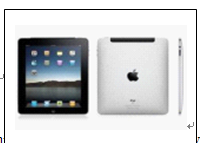
题目列表(包括答案和解析)
There is usually a good rail service (服务) between main towns in Britain. If you are under 24 or over 65 0r if you are traveling with a family, you can buy cheaper tickets on the train. In towns and cities there are usually buses. On Sundays there are fewer bus services and some smaller places may not have a Sunday bus service. In London there is also an underground. But the underground is not easy to use, so you should learn more about it before you use it.
Hotels are very expensive in Britain. A cheaper way is a "bed and breakfast" in someone’s home. Tourist offices or information centres can help you to find these. There are also youth hotels in many places. Students may receive a discount.
Restaurants are often expensive and you cannot be sure the food will be delicious. But Chinese and Indian restaurants usually serve pretty good meals at lower prices. Fast food shops are cheap, but the food is not always very good.
Not all banks exchange foreign money, but you can usually find at least one bank in each town that does so.
If you become ill or have an accident while in Britain and your country has an agreement with Britain for medical care, you can get free medical treatment.
You can only buy stamps in post offices, but nearly every village or part of a town has a post office. Often it is inside a small shop.
44. You may see the article in .
A. a guidebook B. a geography book C. a food advertisement D. a medical book
45. How many kinds of traffic are talked about in the passage?
A. One. B. Two. C. Three. D. Four.
46. Which of the following is NOT true?
A. There’s only one bank in each town in Britain.
B. A 30-year-old man cannot pay less money for trains in Britain.
C. There are different restaurants from different countries in Britain.
D. Students may pay less money than other people when they stay in a youth hotel.
A library is a good place to read, to study, and to get ready for reports. It has three main parts to help you find books quickly and easily.
One part of the library has fiction books. Fiction tells stories about people and things, but they are not real. All fiction books are arranged in alphabetical
(按字母顺序)order by the writer's last name.You will find nonfiction books in another part of the library. Nonfiction books tell facts. They are arranged by subjects. Books about history are arranged together. Books about science are arranged together. Other subjects are arranged together in this way, too.
Reference
(参考)books are in the third part of the library. Reference books give facts about different subjects. The dictionary, encyclopedia(百科全书), and atlas(地图册)are reference books. You can find them in the library.You may borrow books from the library if you have a library card. A library card is in name, You can get a library card at your school, your town or city library.
Inside the cover of each library book is a pocket with a card. The card has the name of the book and the writer's name. When you borrow a book, the librarian records your library card number and the date which is due
(到期的).The librarian will put the date inside the book cover. This is how you borrow a book from the library.Choose the best answer.
(1) All the books in the fiction part of the library are arranged__________.
[
]A
.in alphabetical order by the writer's last nameB
.in alphabetical order by the writer's first nameC
.by their subjectsD
.by their other subjects(2) The books about Monkey King will be put in___________.
[
]|
A .fiction part |
B .nonfiction part |
|
C .reference books |
D .library card |
(3) if you want to look up the meaning of a new word or a new phrase, you should go to the__________.
[
]|
A .science book |
B .fiction part |
|
C .nonfiction part |
D .reference part |
(4) You have to return the book to the library _________ the date is due.
|
A .after |
B .late |
C .before |
D .behind |
(5) The librarian will put the date inside the____________.
[
]|
A .book cover |
B .reference book |
|
C .science book |
D .book pocket |

| |||||||||||||||||||||||||||||||||||||||||||||||||||||||||||||||||||||||||
| Body language is very important in communication. Studies 1 that only 7% of the communication in daily 2 is in words. Westerners expect people 3 at each other 4 the eyes when they talk. If you don't do that while you 5 , it may show that you do not like the person, 6 that you are not interested in what the person says. When 7 hands westerners will shake two or three times. Do not shake 8 westerner's hand for a long time. When a man shakes hands 9 a woman, it is 10 for the woman to hold 11 her hand first. In the west, 12 with one finger at a person while talking 13 means that the person 14 is speaking is criticizing the person who 15 pointed at. Besides this, men in English-speaking countries touch men much 16 than men touch men in China. But men and women touch each other publicly 17 than men and women touch each other publicly in China. Boy friends and girl-friends often 18 hands, embrace ( 拥抱 ) or kiss in public. Good friends often 19 one another with a kiss 20 the cheek, if they are women or of opposite sexes. | ||||
|
湖北省互联网违法和不良信息举报平台 | 网上有害信息举报专区 | 电信诈骗举报专区 | 涉历史虚无主义有害信息举报专区 | 涉企侵权举报专区
违法和不良信息举报电话:027-86699610 举报邮箱:58377363@163.com